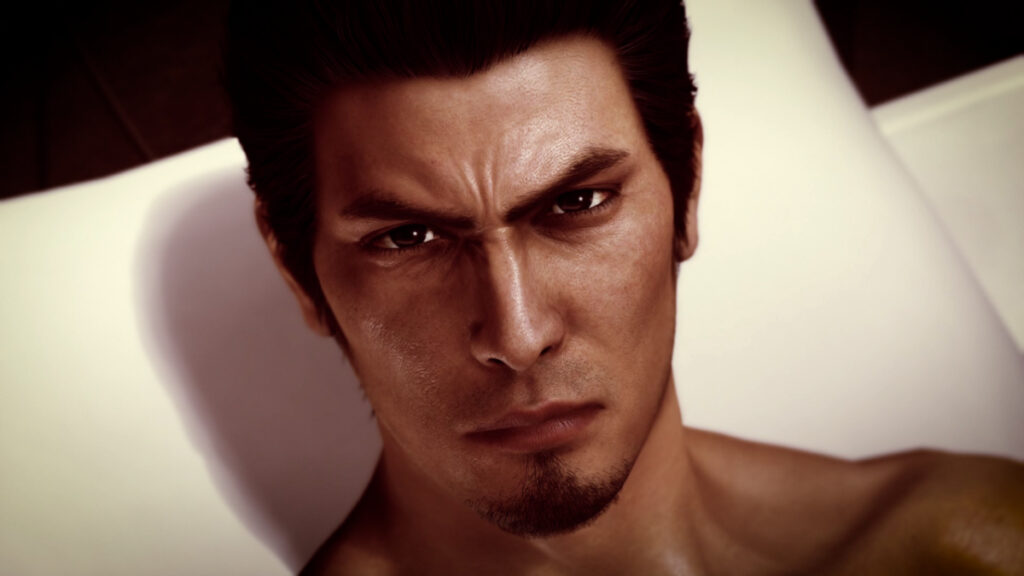Skip To...
There are two things Kazuma Kiryu can never escape: the violence of yakuza life and karaoke. In Like a Dragon Gaiden: The Man Who Erased His Name, not even faking his own death is enough to keep the former gangster out of trouble. Though its main story is brief by the usual standards of the Yakuza franchise, Kiryu’s latest outing loses none of the impact, humor, or heart that the series is known for. Despite its late placement in the series, The Man Who Erased His Name is in some ways the perfect introduction. Like the sushi Kiryu gobbles up, it’s a delicate, artisanal bite. Though it may not satiate large appetites, those who are content with smaller dishes could hardly ask for anything tastier.
Like a Dragon Gaiden: The Man Who Erased His Name Review
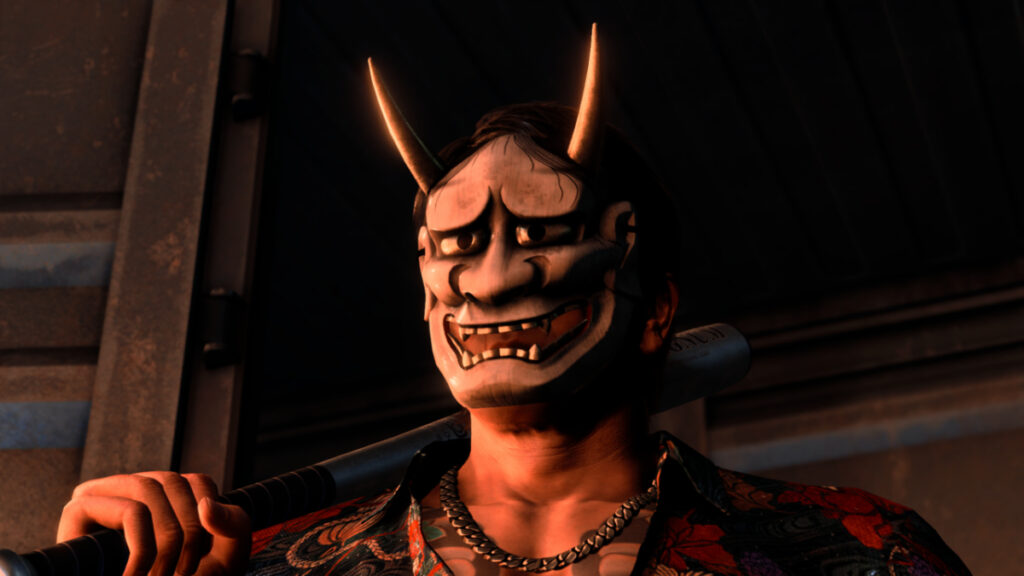
Kiryu’s adventures continue in this stylish action RPG. There’s a deep story here, albeit a brief one. The plot weighs in at about 10 hours if you focus on just wrapping up the main mission. Gameplay alternates between furthering the main story and wandering around Osaka and Yokohama beating up street thugs, eating burgers, and helping your fellow cityfolk with their endless list of problems. Combat has an arcadey feel, which is appropriate for a title that includes actual arcade games as a side content. The “rule of cool” is very much in play. When forced to choose between what’s realistic and what’s awesome, the game picks awesome. The result is as flashy as it is funny.
Story: Say My Name
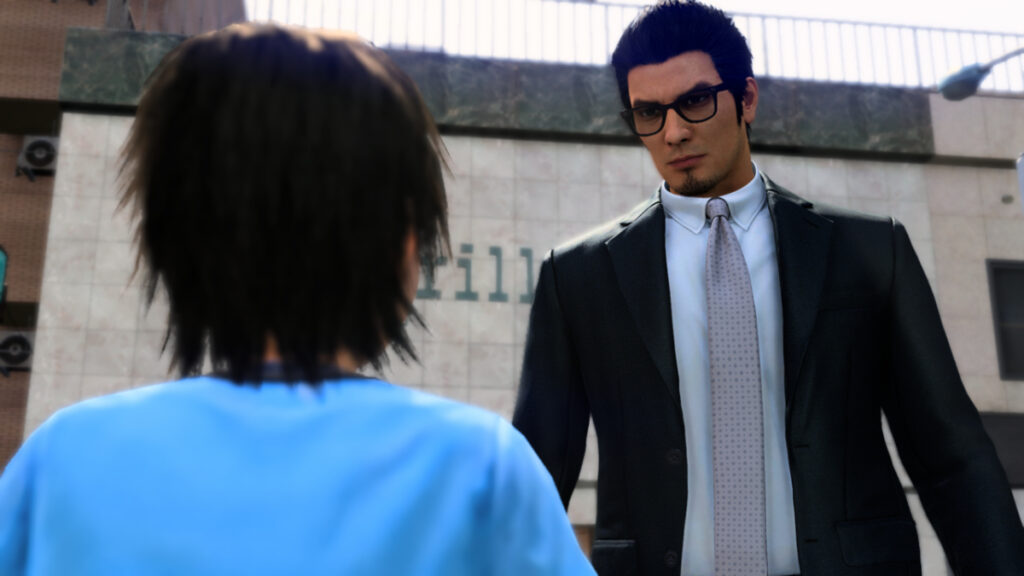
Kiryu has surrendered his name and his old life by faking his death. It’s an extreme measure but necessary to leave his troubled past amongst the yakuza behind and protect his foster children. Operating now as “Joryu,” an agent of the Daidoji Faction, Kiryu prepares for a bland and unfulfilling existence completing tasks for his manager Hanawa. That future isn’t meant to be, however. A captain of the Watase Family has been searching for Kiryu and offers to free the dead man from Daidoji’s claim over him. Kiryu would be able to see the children of Morning Glory orphanage again, but only if Hanawa dies first.
Kiryu’s mission in The Man Who Erased His Name takes him from the entertainment district of Sotenbori to the port district of Isezaki Ijincho. It even extends to The Castle, an offshore container ship that functions as a Las Vegas clone. There’s gambling, prize fights, and other distractions beneath the bright lights. The story’s rhythm is fantastic, introducing and resolving each plot thread exactly when it should. Overall, you’ll probably enjoy the game’s pacing. That’s true whether you’re laser-focused on completing the main story or spend hours at the karaoke bar before accepting a single quest.
Fans of the Yakuza series are familiar with the franchise’s oddball approach to storytelling. The central plot is a fundamentally serious one, dealing with themes such as regret, obligation, familial responsibility, and vengeance. The aging ex-yakuza had his hands full of drama long before he surrendered his name. Faking his own death has in some ways made his situation worse. Even when the storytelling aims to be serious, however, it’s so intentionally outlandish that it’s often hard to take seriously. The result is a soap opera. Even when abduction, murder, and betrayal are on the table, the hammy acting and over-the-top facial expressions undercut everything in a comforting and familiar way.
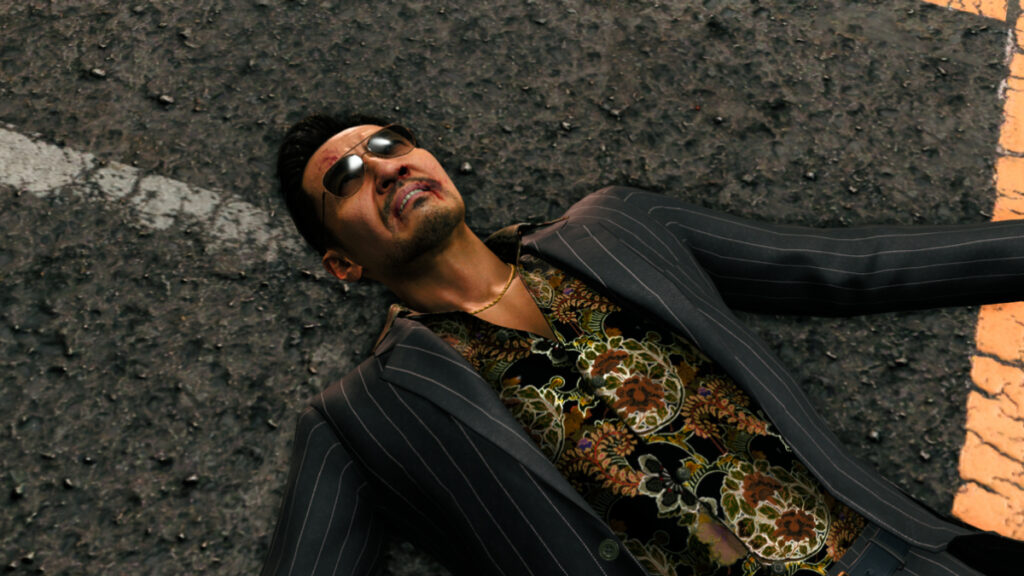
The main plot of Like a Dragon Gaiden is off-kilter, but it has nothing on the whirlwind of absurdity that is the side content. Almost everyone Kiryu meets has a problem, and many of them are downright silly. One quest might have Kiryu sprinting across the city to fetch someone sushi, while another has him beating up every single member of a gang. One particularly juicy side quest sees Kiryu helping an aspiring streamer grow his channel. How? By aiding in the paranormal investigation of a haunted apartment, of course.
The voice acting for Kiryu and other major characters is solid, and so is the writing. Everyone has a chance to let their personality shine, and even minor characters get their moment in the limelight. Excellent performances and facial animations help sell the story’s emotional beats. That’s fortunate, because Kiryu, Akame, and the others go to some surprising places emotionally. The delivery never lets them down. If the story has one weakness, it’s the length. Brevity is both pro and con here. I simply wanted more. That said, it doesn’t overstay its welcome, wrapping everything up just when it should.
Mechanics: Left Hooked
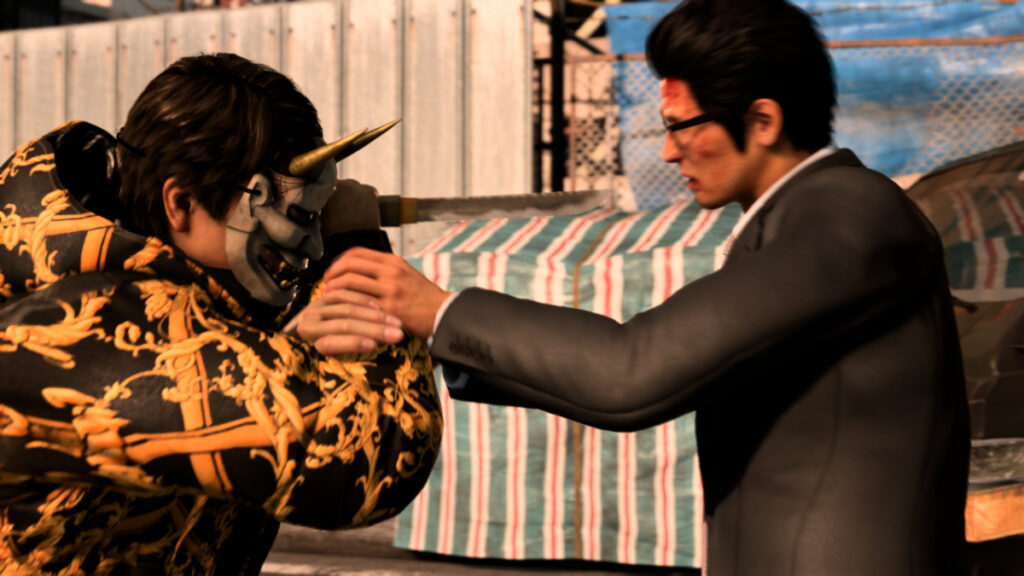
Life is tough in The Man Who Erased His Name, but not so tough that you can’t roundhouse kick it into submission. Kiryu may have sacrificed everything to escape his past, but the yakuza life isn’t eager to let him go. That means you’ll have to punch, kick, throw, and smash your way through a few hundred baddies before you can rest. Most of your opponents are either yakuza or street thugs who wildly underestimate Kiryu’s ability to smash their noses in. The game isn’t afraid to mix things up, however, and you’ll face a handful of truly unexpected foes.
Combat may take a little getting used to if you aren’t familiar with other Yakuza titles, but it’s quite forgiving. You have two fighting styles, Agent and Yakuza, which you can swap between at will. The Agent style prioritizes high-tech gadgets and slick maneuvers. The Yakuza style prioritizes improvised weapons and straightforward brutality. On the default difficulty setting, most fights can be completed equally well with either fighting style. The main incentive to switch styles is that you get to see the over-the-top moves both are capable of. When you aren’t busy hunting for locker keys, beating up thugs is always a nice distraction.
Fighting feels great overall. The standard punches, kicks, and throws are all satisfying, but your special attacks are what make battles most enjoyable. The Yakuza style in particular is a ridiculously good time. Facing off against a dozen men in a cramped office? Not to worry. Just beat to them a pulp with the nearest office chair. Maybe break a potted plant over their leader’s head for good measure. Using furniture and knickknacks to pulverize wrongdoers feels just as satisfying as you’d hope. It also builds a Heat Meter that, when filled, can be unleashed for devastating special attacks or a temporary transformation into Heat Mode.

In addition to combat, there are tons of other activities you can take part in. Mahjong, pool, darts, cabaret, karaoke, racing, and other minigames can take up far more time than the central story. It’s not even close, and that’s a good thing. The ability to balance your pursuit of the main quest with the endless stream of leisure activities is part of what makes the Yakuza series so special, and Like a Dragon Gaiden: The Man Who Erased His Name proves itself a worthy member of the family. Whether you’re into Virtua Fighter or the crane game is more your thing, you’ll have zero trouble finding something to do. The mechanics are solid throughout.
The inclusion of minigames and side activities in open-world and sandbox games is nothing new. In fact, it’s part of what the genre is known for. That said, The Man Who Erased His Name does an exceptional job with these activities. You could easily put dozens of hours into grinding the ranks of the Coliseum and beating the hell out of anyone who even thinks they can challenge you for the title of World’s Greatest. That’s just one activity, and it’s astounding to realize how seriously the game takes all of them. It’s a testament to the quality and commitment of the dev team that none of these activities feel rushed or ill-conceived.
Graphics & Audio: City Sights, City Sounds
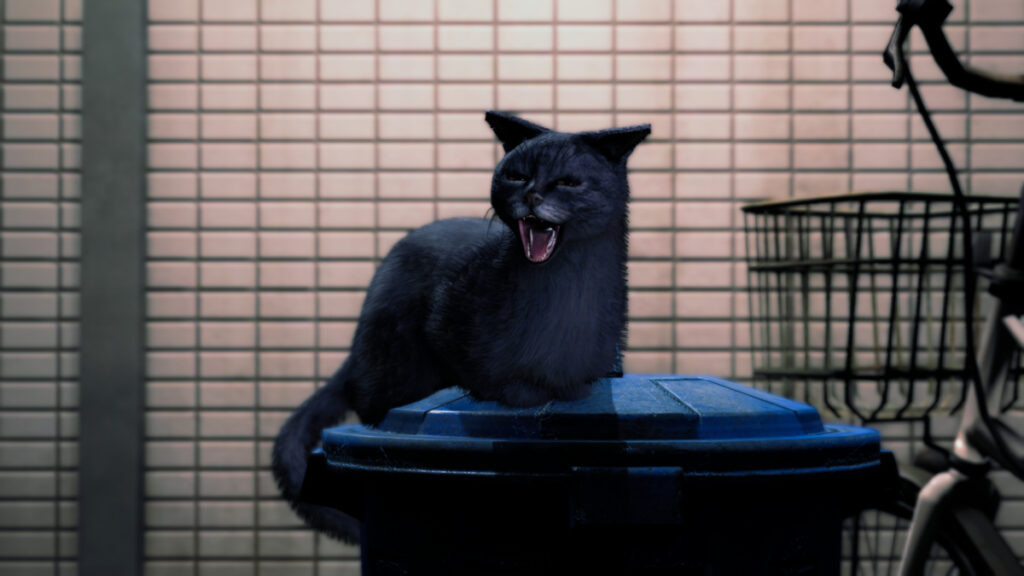
Six men in suits surround you in a grimy alley. You bumped a shoulder passing by, and now this gang means business. Your feet and fists fly, cracking bone and sending dazed men sprawling backward. An electric blue lash extends from your hands to lasso one of the men and toss him into two of his friends. Before they can recover, you snatch a traffic cone from the sidewalk and use it to drive the last man’s head into the pavement. The fight is over as soon as it starts, and the only evidence is the sound of some fallen Yen hitting your pocket. Like a Dragon Gaiden: The Man Who Erased His Name sounds as good as it looks.
The ambient sound design is understated but pleasant. Though I was rarely blown away, I was never disappointed. The music is solid throughout. It fits emotional conversations as well as it does boss battles, cabaret, and random street fights. Transitioning from one activity to the next always feels natural, which is striking considering how many different activities the game throws at you. Cutscenes are fully voiced, while other dialogues are silent except for the occasional grunt or murmur. My only minor complaint is that there could be more variety to these vocal expressions, as their repetition becomes tiresome in long conversations.
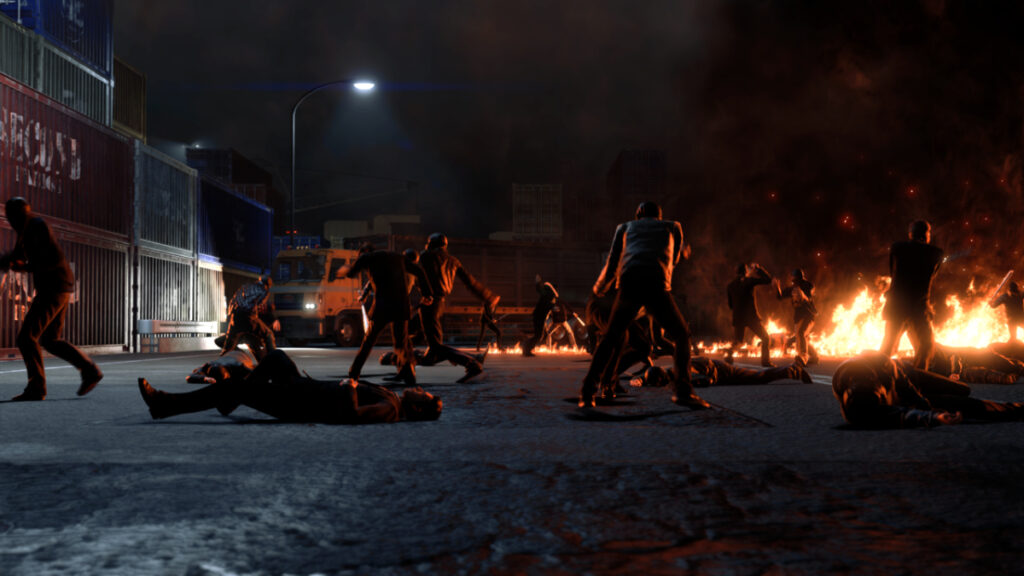
The Man Who Erased His Name follows the expected Yakuza aesthetic: it’s stylized but never cartoony, befitting the over-the-top personalities of the cast. The graphics are what you would expect from a modern entry in the series. Both city districts and The Castle are lovingly rendered, and the attention to detail is most obvious at its smallest scale. Wander into one of the several convenience stores and walk the aisles, taking in the minute details on the labels of products on the shelves. It’s the kind of ball that a lesser franchise would drop, but Yakuza is no lesser franchise.
The game’s graphics and audio benefit tremendously from its expert direction. It’s easy to overlook camera placement, camera movement, lighting, and other artistic choices, but they’re consistently well done here. The Man Who Erased His Name often feels more like a high-budget crime series or action movie than it does a game. Screenshots and text don’t do justice to how the audio and visual design feel in motion with the full force of the cast behind them. If you’ve never enjoyed the style of Yakuza games, this one won’t sway you. If you’re a fan, it doesn’t get better than this.
Conclusion: Unerasable Quality

Like a Dragon Gaiden: The Man Who Erased His Name feels like a distillation of everything that makes the Yakuza franchise great. Though smaller in stature, it packs a punch that lets it fight well above its weight. From the cats to the trophies, there’s a lot to like. If you’ve always wished the melodramatic stories and arcadey battles of the other games came in a more digestible package, this is it. During my time with the game, I experienced no crashes and only minor glitches. The Dragon of Dojima might wish to be forgotten, but when his games are this good, that’s not going to happen anytime soon.
Like a Dragon Gaiden: The Man Who Erased His Name is available for PC, PlayStation 4, PlayStation 5,
Like a Dragon Gaiden: The Man Who Erased His Name (PC Reviewed)
A lighter, leaner Yakuza game but one that hits just as hard with its story and combat.
Pros
- Fantastic characterization
- Brutal and satisfying combat
- Great minigames
Cons
- Short compared to previous titles
- Occasionally annoying audio and dialog issues

